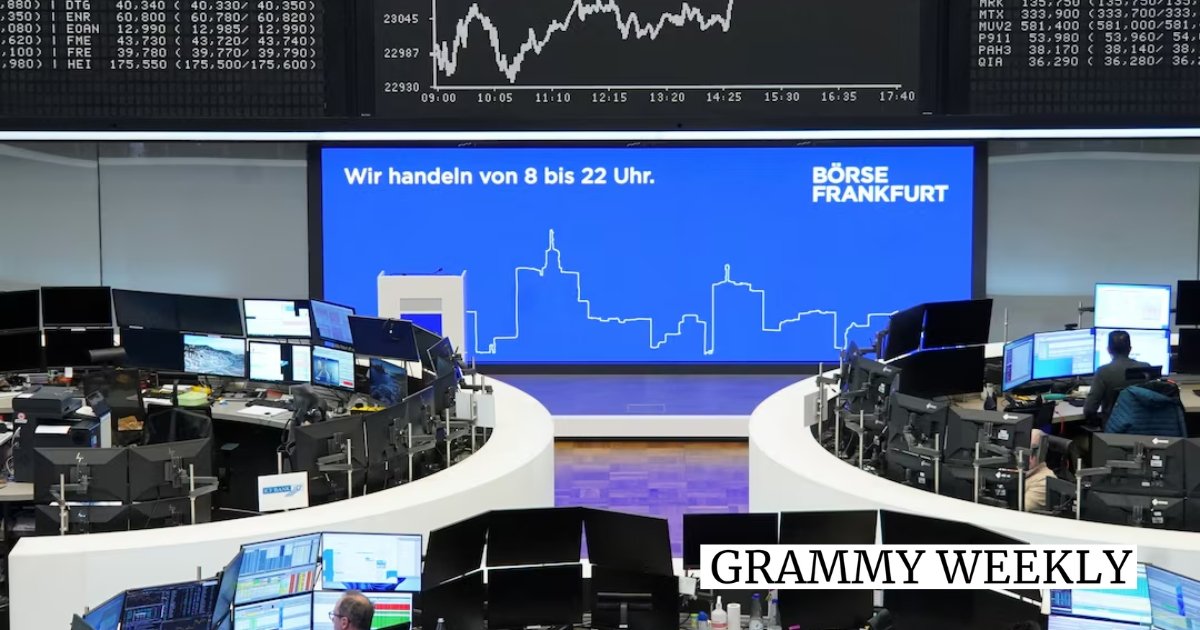While uncertainty around a discussion on Ukraine between Russian President Vladimir Putin and U.S. President Donald Trump maintained gold at $3,000 an ounce, European markets held steady Tuesday ahead of German lawmakers voting on a historic change of government spending.
The performance of U.S. stocks and those in other countries, especially China and Europe, where markets have witnessed a spike in inflows from investors who have profited from Wall Street’s exorbitant valuations, has diverged significantly this month.
U.S. economic data is beginning to show that Trump’s unpredictable trade strategy and his mass firings of federal employees have created uncertainty for businesses, households, and investors.
While the S&P 500 (.SPX) dropped 4%, Europe’s STOXX 600 (.STOXX), which opened Tuesday up 0.5%, has increased by 8% this year. This is the largest outperformance of European equities versus the U.S. index in the first 12 weeks of the year in a decade.
Meanwhile, helped by this month’s sharp increase in German bond yields, the euro surged beyond $1.09 to its highest level since early October.
Later on Tuesday, Germany’s lower house of parliament will vote on a significant borrowing rise that might drive growth throughout the region and bolster Europe’s largest economy, which is a major element in the euro’s recent strength.
According to Christoph Rieger, chief rates strategist at Commerzbank, “history will be made today when the Bundestag approves a change to the constitution, abandoning the fiscal stance Germany has always been known for.”
At 2.843%, German 10-year government bonds were up 45 basis points this month and 4 basis points on the day.
In recent weeks, mood in Europe has been bolstered by the possibility of a truce and ultimate peace in Ukraine. Market caution was heightened by the possibility that Kyiv’s territorial concessions and control of a nuclear power facility would be discussed during a planned discussion between Trump and Putin later Tuesday to explore ways to stop the crisis.
GOLD STAR
Due to safe-haven flows, gold surged above $3,000 for the first time ever and maintained above it on Tuesday, increasing its year gains to 15%.
“Central banks and individuals want gold during uncertain times, and the price of gold is rising due to inflation worries brought on by President Trump’s tariffs and trade war. In 2025, the price of gold would typically be above $3,000 per ounce, according to Kathleen Brooks, research director at XTB.
Stronger retail sales statistics from China the day before and a number of initiatives to boost domestic spending in the second-largest economy in the world also helped Asian stock markets rise on Tuesday.
A three-year high was reached by Hong Kong shares (.HIS), while Japan’s Nikkei (.N225) saw a 1.5% recovery, setting it up for its biggest increase in three weeks.
As investors flee the United States due to concerns of a recession, China has become an unanticipated beneficiary of Trump’s flurry of tariffs and government expenditure cuts in his first two months in office.
Nick Ferres, chief investment officer at Singapore’s Vantage Point Asset Management, stated, “Momentum and sentiment are shifting now as well in a positive way.”
Trump further increased hopes that a historic agreement could lower tariffs by stating that Chinese President Xi Jinping might visit the United States soon.
Following slight advances in the S&P 500 and the Nasdaq (.IXIC), U.S. stock futures were largely flat in Europe as the market opened for business on Monday. However, Wall Street sentiment is still shaky as Trump’s planned reciprocal tariffs are about to go into force in April.
Lower-than-expected manufacturing activity and retail sales numbers continued to push the US dollar and US rates lower.
For the first time since the U.S. election in early November, sterling increased by 0.1% to $1.300. The exception was the Japanese yen, which fell precipitously, leaving the dollar up 0.3% at 149.67.
The yield on the 10-year Treasury was 4.2908%.
The U.S. Federal Reserve, which wraps up a two-day meeting on Wednesday, is the market’s main focus, although a German economic survey is due later today.

